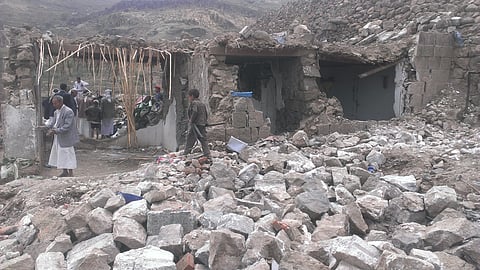

Yemen’s Ansar Allah movement, known in the West as the Houthis, announced on Thursday the death of Major General Muhammad Abd al-Karim al-Ghamari, the Chief of Staff of its armed forces. According to the group’s statement, al-Ghamari died from injuries sustained during an Israeli airstrike on August 28 in Sanaa.
While Yemen’s Houthi-controlled authorities said only that al-Ghamari died “while fulfilling his duties,” Israeli Defense Minister Israel Katz confirmed that al-Ghamari was among those targeted in the strike. The same attack also killed several senior Ansar Allah officials, including the group’s Prime Minister Ahmed al-Rahawi. Reports from Sanaa indicate that al-Ghamari’s 13-year-old son, Hussain, was also among the casualties.
Following his death, Ansar Allah appointed Major General Yusuf Hassan al-Madani as the new Chief of Staff, signaling a swift leadership transition to maintain stability within the group’s military command.
Since October 2023, Ansar Allah has enforced a naval blockade in the Red Sea aimed at restricting Israeli maritime trade. The blockade has severely impacted Israel’s Port of Eilat, which has faced bankruptcy due to halted shipping activity. The blockade, in turn, prompted a year of U.S. airstrikes under former President Joe Biden and two months of bombing under President Donald Trump earlier this year, alongside multiple Israeli attacks.
Currently, the group is observing the recently established ceasefire that ended fighting in Gaza last week. However, Ansar Allah has warned that it will resume its campaign if Israel violates the truce. Earlier this year, the group made similar threats when Israel blocked humanitarian aid to Gaza, issuing a four-day ultimatum that led to a renewed round of U.S. strikes in March.
Despite heavy bombardment, Ansar Allah has demonstrated resilience against the U.S.-led air campaign. The operation proved costly for Washington, which reportedly lost two F-18 fighter jets during the campaign. The Trump administration ultimately agreed to end its air operations over Yemen but did not require the Houthis to halt their naval blockade or missile attacks on Israeli territory—an outcome viewed as a strategic setback for the U.S. and Israel.